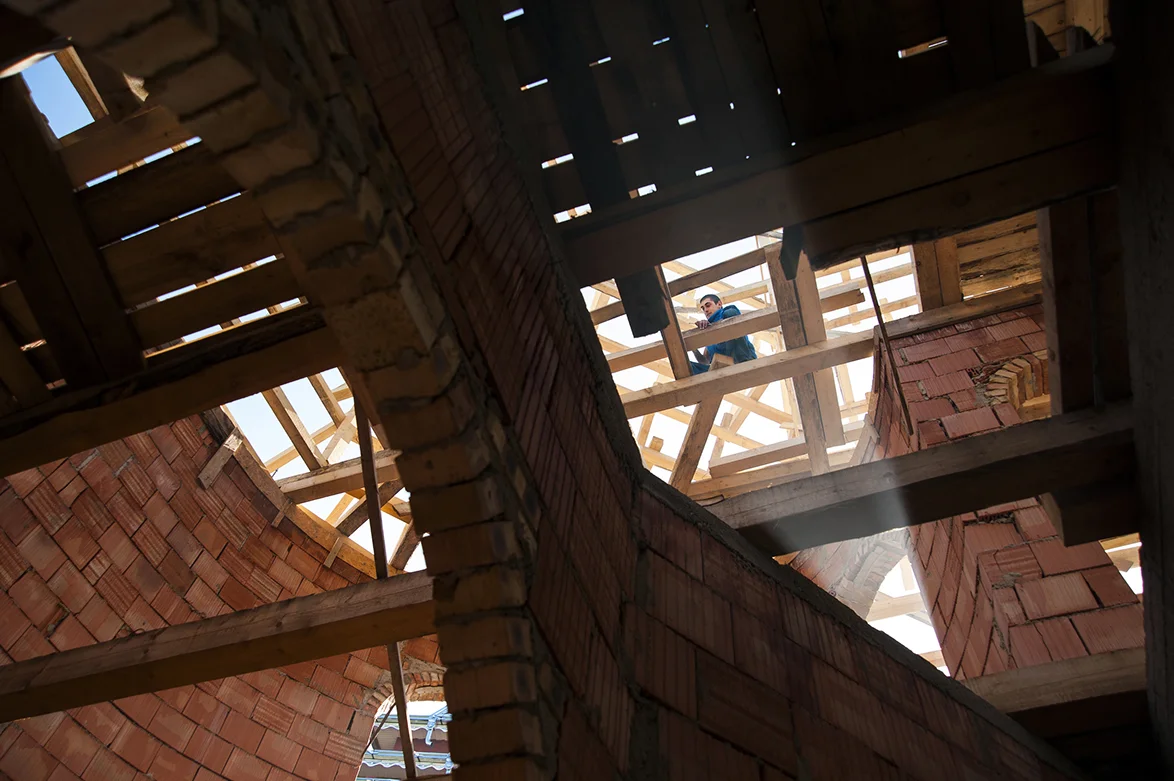Gypsy
The photographic essay is a visual exploration of life and culture within Romania’s ‘gypsy’ community.
Written story below.
Roma, or “gypsies” face growing challenges across Europe, and especially in Romania where they struggle to secure food, water, housing and work. Many lack the necessary legal documentation to find work, attend school, drive or even report a crime. Hardest hit in the lowest cast of gypsies are the orphans, the mentally illand and women and children who live without protection when the men travel abroad to find work. Theft, rape and abuse are common and local police are seldom there to help. That struggle plays out every day for the Hendre family who live in the tiny village of Cheriu near the Romanian border with Hungary. In her two room clay house with her eleven children, Angelica Hendre voices her frustration about the treatment her family has endured at the hands of the local government. “Without water, how can I wash our clothes?" asks Angelica Hendre. “It is too cold to wash them in the river, so we burn them to not get skin diseases and lice. We aren’t dirty because we are lazy, but where should we take a bath when the river is frozen?” Her hands cover her eyes. “I want them (her children) to have a good future, go to school and get married, but all I think about today is if they eat, and if we have enough to burn and keep warm.” For most families in the village, winter months are all about survival.
For Angelica, her children have no formal education and lack the necessary legal documentation to attend school or receive the financial support afforded to them by the system. And when one of her daughters was raped in their home the local medical examiner refused to start an investigation since she lacked the proper government identification paperwork. The reality is not uncommon amongst Roma throughout Romania where gypsies are treated as second-class citizens at best, and often with contempt. They are seen as beggars and thieves, though crime in Romania is quite low. But facing starvation, what alternatives are there to begging?
Angelica and her family live an hour’s walk from the nearby city of Oradea, where many Roma women and children go to beg for food or money in the street. Older boys and men who couldn’t make their way abroad to Spain or Italy forage for scrap metal in a nearby abandoned artillery field. They sell small shell casings and copper wire to local scrap yards to buy bread. When they are chased out of the fields, they go into the city and check dumpsters for anything they can eat, sell or use. Some travel to the local dump where they sift through trash for food or metal- anything of value they can sell or use. Some get lucky and find ways to travel abroad where they can work illegally. “They should stay outside the city.” says my taxi driver, preferring to remain anonymous. I faced near constant criticism for even making this story. The voices and faces were different, but the message was the same, “Gypsies make Romania look bad.” And Romania does not like to project a negative image to the international community.
The Roma face fierce stigma within their own country and even throughout the rest of Europe. For one young man who lives with his girlfriend and their infant in the basement of an abandoned shoe factory, he has no help from the authorities. When his identity card expired while working in Holland he travelled back to Romania to renew it. The problem arose when the official from the city hall said he needed to provide a birth certificate, which he never had. He was born in a village on the other side of the country and lived with his uncle. Like many gypsies, his parents never properly documented their child. “I can’t help you.” say the woman behind the glass window. There are no programs to help gypsies who lost their documentation, had it stolen or never received it from their parents or the orphanage where they were raised.
Help occasionally comes from international religious aid organizations, but not much. In 2015, a group of volunteers from a small church in Scotland came to Cheriu to install the first water lines in the colony. However, after the group left arguments arose about how to pay for the water bill, as few in the colony had jobs. After the group returned to Scotland, utility workers from the county came and shut off the water. The next day several men from the village decided to dig up the newly-installed pipes and sell them for scrap in order to buy food. Gypsies make up between five and ten percent of Romania’s total population, yet face a staggering uphill battle both for equal rights and representation. Romania receives billions of euros in financial aid from the European Union and various international organizations, yet little of that funding helps its most impoverished group.












































